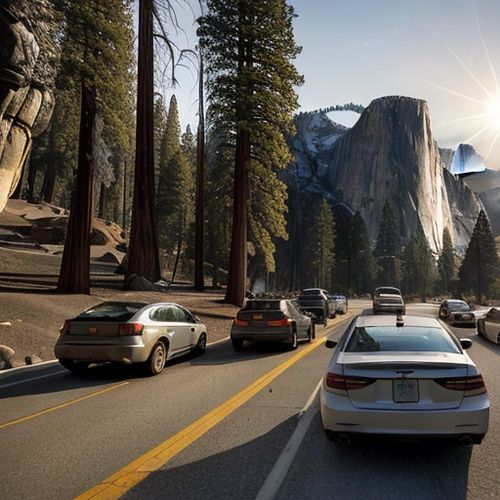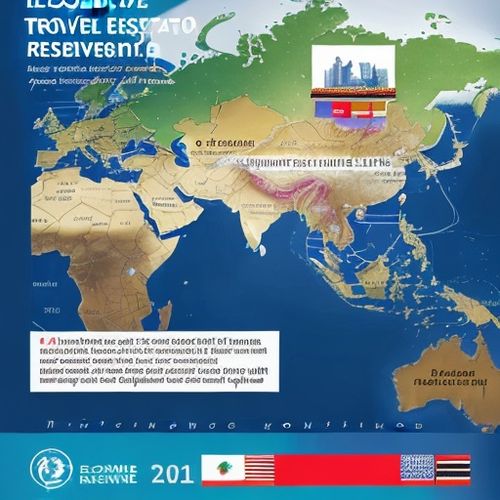The travel landscape is undergoing a seismic shift as Generation Z steps into the spotlight as the next wave of globetrotters. According to Booking.com's latest report, these young travelers are redefining what it means to explore the world, prioritizing experiences that resonate with their values, curiosity, and desire for authenticity. Unlike previous generations, their approach to travel is less about ticking off landmarks and more about immersing themselves in cultures, forging connections, and creating stories worth sharing.
One of the most striking findings from the report is the emphasis on cultural immersion. For Gen Z, travel isn’t just about seeing a place—it’s about living it. They crave opportunities to engage with local communities, learn traditional crafts, or participate in festivals that offer a genuine glimpse into the soul of a destination. This generation is far more likely to book a homestay with a local family than a sterile hotel chain, seeking out interactions that feel personal and unfiltered. The rise of platforms offering "live like a local" experiences speaks volumes about this trend, as young travelers swap tourist traps for backstreet eateries and neighborhood hangouts.
Another defining characteristic of Gen Z travelers is their unwavering commitment to sustainability. The climate crisis looms large in their collective consciousness, and their travel choices reflect a deep sense of responsibility. From opting for eco-friendly accommodations to supporting businesses with clear ethical practices, they’re willing to spend more—or travel further—to align their adventures with their principles. The report highlights a growing demand for carbon-neutral tours, plastic-free stays, and even "voluntourism" trips where they can contribute to environmental or social causes. For them, travel isn’t just a privilege; it’s a chance to leave a positive footprint.
Perhaps the most unexpected revelation is the importance of digital detoxes in an otherwise hyper-connected generation. While Gen Z is famously glued to their screens, the report suggests they’re increasingly seeking escapes that allow them to unplug and reconnect with the physical world. Remote cabins, off-grid retreats, and destinations with limited Wi-Fi are becoming surprisingly popular among these young travelers. It’s a paradox that speaks to their self-awareness: they recognize the toll of constant connectivity and view travel as a rare opportunity to step away from the digital noise and be fully present in their surroundings.
What ties these preferences together is a broader rejection of traditional tourism’s one-size-fits-all approach. Gen Z doesn’t want packaged vacations; they want transformative journeys that challenge their perspectives and expand their understanding of the world. They’re drawn to destinations that feel undiscovered or underrepresented, often turning to social media not for polished influencer content but for raw, unfiltered recommendations from peers. The report notes a surge in interest in lesser-known regions, with young travelers actively avoiding overcrowded hotspots in favor of places where they can make a meaningful impact or have a unique encounter.
This generation’s travel habits also reflect their financial pragmatism. Despite their appetite for adventure, they’re remarkably savvy about stretching their budgets—another departure from the stereotype of reckless youth. The rise of "workation" culture, where remote work and travel intersect, allows them to extend trips without sacrificing income. They’re masters of finding deals, leveraging loyalty programs, and choosing destinations where their currency goes further. But unlike budget travelers of the past, they won’t compromise on their core values to save a few dollars; sustainability and authenticity remain non-negotiable.
The hospitality industry is scrambling to adapt to these new expectations. Forward-thinking hotels and tour operators are redesigning their offerings to emphasize local partnerships, transparency in sustainability efforts, and opportunities for genuine cultural exchange. Meanwhile, destinations once overlooked by mainstream tourism are finding themselves in the spotlight as Gen Z’s appetite for the unconventional reshapes travel maps. The report suggests this is just the beginning of a larger transformation—one where travel becomes less about consumption and more about connection, less about escape and more about engagement.
As this generation comes of age, their influence on global travel will only deepen. Already, their preferences are pushing the industry toward greater accountability, creativity, and inclusivity. The destinations that thrive will be those that offer not just sights to see, but stories to live—a lesson that extends far beyond Gen Z. In many ways, these young travelers aren’t just changing how they see the world; they’re changing how the world presents itself to them.

By Lily Simpson/Apr 6, 2025

By William Miller/Apr 6, 2025

By Joshua Howard/Apr 6, 2025

By Christopher Harris/Apr 6, 2025

By Jessica Lee/Apr 6, 2025

By Benjamin Evans/Apr 6, 2025

By Michael Brown/Apr 6, 2025

By Olivia Reed/Apr 6, 2025

By Victoria Gonzalez/Apr 6, 2025

By Christopher Harris/Apr 6, 2025

By Emily Johnson/Mar 31, 2025

By Emily Johnson/Mar 31, 2025

By John Smith/Mar 31, 2025

By Emily Johnson/Mar 31, 2025

By Amanda Phillips/Mar 31, 2025

By Victoria Gonzalez/Mar 31, 2025

By Noah Bell/Mar 31, 2025

By Sarah Davis/Mar 31, 2025

By Laura Wilson/Mar 31, 2025

By Sarah Davis/Mar 31, 2025